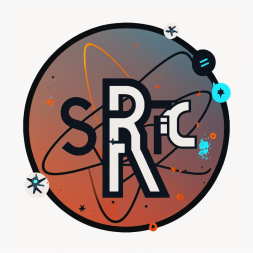Big data—the accumulated connections, movements, downloads, purchases, and so on of the 6.8 billion people using some sort of connected device—has made it possible for scientists to study the human species in the same way they study tagged animals in their natural environments.
Scientists are now studying human patterns at an unrivaled scale and with unprecedented precision. Researchers have longed for these sorts of objective measures—enough data to prove hypothesis and transform sweeping generalities into defendable arguments.The nature of the data is such that scientists can see not only what we do and where we do it but also how and where we learn. In other words, they can see where the ideas for what we do come from. The mathematical rules of behavior emerging from these observations have been collectively named “social physics,” the understanding of how ideas and information flow from one person to another.
Here’s the interesting thing: What began as the study of how individuals make decisions is revealing that we humans are not actually the freethinking individuals we believe ourselves to be.
It seems that social learning—what we pick up from our peers and communities—is as important as genes and IQ in determining our health, income, and behavior. Over time, we develop a shared set of habits for how to act and respond in many different situations, and these largely automatic habits of action account for the vast majority or our daily behavior.
And what we think of as our own individual ideas are generally those shared by our community. Who we talk to is more important than our character or intelligence. As Alex Pentland wrote in New Scientist this past spring, “Instead of individual rationality, our society appears to be governed by a collective intelligence that comes from the surrounding flow of ideas and examples.”
There is a concomitant burst of study taking place on species other than our own, on the degree to which they are capable of rational decisions and conscious thought. Among the things we have learned is that the term “bird-brained” should no longer be an insult. Crows, for example, make their own tools, recognize human faces (and remember those who have offended), intentionally lie to each other, and have learned to buy peanuts at vending machines and use cars at traffic lights to crack them.“Flock mentality” has always been used pejoratively for humans, but that is now up for reconsideration as well. In a remarkable essay called “Other Selves,” the late naturalist John A. Livingston ponders the difference between individual and collective selves. He makes the point that the human addiction to the ideas of free will and individualism comes with a high cost for our awareness of the collective self that is nature.
Livingston describes flocks of sandpipers and their “speed and extraordinary maneuverability,” the “marvelous synchrony of their movements.” And of our human way of trying to comprehend it, he says: “Steadfast in subservience to our individualistic meta-physics, we ask how the instructions are communicated. How does each and every single bird know what it is supposed to do? By what means are the necessary commands (the political assumption of a ‘leader’ is ineradicable) transmitted and received? And how can an individual bird act on them so swiftly?” The answer, according to Livingstone, is that a flock of birds is a super organism, with discrete parts that flow from “one awareness, one consciousness, one self”.
He goes on to suggest that this super-organism, which integrates individual selves, is a more evolved form of consciousness than the one we humans live in daily, and that we do not need to learn it, only to retrieve it from what we already know. That means trying to erase the ideas we currently hold.
If this is beginning to remind you of eastern philosophies and other more-spiritual-than-scientific views of the world that have been around for thousands of years but are now becoming the purview of science, that’s a good thing. If it makes you rethink our connection to—and “superior” position within—nature, bravo. If it makes you reconsider whom you hang out with and where your ideas come from, that’s a great reason for hope.
Our flock mentality is such that in the collective we have come to believe that reading should be short. There is, therefore, no time or space on a blog post to go deep into any of these ideas. I highly recommend it, though. Here are some things to assist with the dive:
- Rooted in the Land, by Wes Jackson and William Vitik
- A field Guide to Getting Lost, by Rebecca Solnit
- Mind of the Raven, by Bernd Heinrich
http://unreasonable.is/


No comments:
Post a Comment